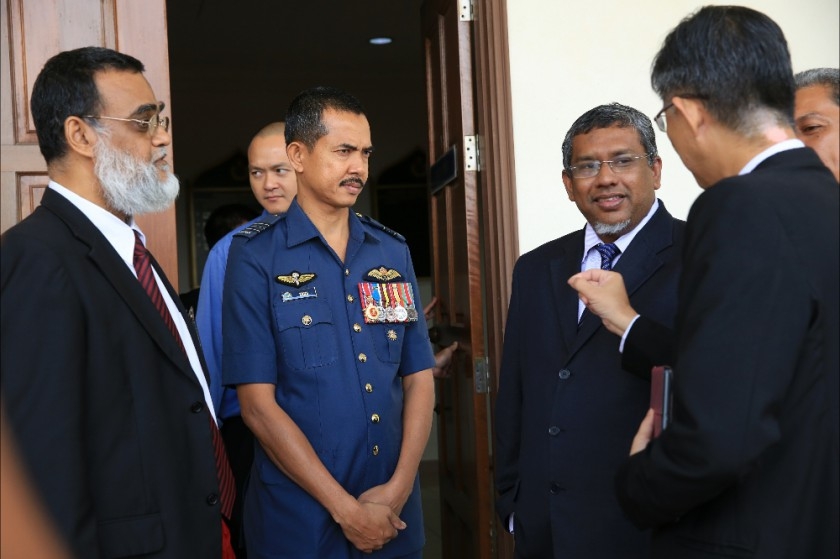By Pauline Wong

Major Zaidi was punished for highlighting problems with the indelible ink. (Pic from The Malay Mail Online)
There is a phrase which goes “do not bite the hand that feeds you”, and oftentimes it is a term used to justify sanctions imposed on public service officers or anyone in government employ to prevent them from criticising the government.
This phrase is the tacit ‘code of conduct’ for a civil servant; he must never speak ill of his employers or risk getting in ‘trouble’ because it is disloyal to criticise the institution that signs your pay cheques.
This phrase is absolutely odious, and for many reasons.
The first reason is that it assumes that the civil servant is an obedient pup, waiting at the master’s table for its dinner. It follows where the master goes and does not bite his master’s fingers because that would mean the food will stop.
Second, it assumes that there is a ‘gratefulness’ which must be adhered to, that a person must be thankful for being given a job with the government.
Third, it offends because it pretends to be justified by loyalty to the government, when nothing could be further from the truth; the civil service’s loyalty is to the rakyat.
This is why the dismissal of Air Force Major Zaidi Ahmad is more than one man losing his job, but is about an entire institution losing its independence.
Zaidi was today found guilty and dismissed from service by a military court of two counts of violating protocol, when in May 2013 he revealed problems with the indelible ink used in the 13th General Elections.
He had at that time held a press conference where he showed reporters how the indelible ink on his finger had washed off after army personnel completed advanced voting on May 1, 2013.
A five-member panel found him guilty of breaching two standing orders; one of speaking to the media without the consent of the Defence Ministry, and sharing confidential information with the media without the consent of the Armed Forces Council under Section 50 of Armed Forces Act 1972.
After he was found guilty, a defiant Zaidi had reportedly charged that the judges were more interested in “filling their stomachs” than their heads, accusing them of a political motivation.
Too afraid to risk their ‘rice bowl’?
The immediate reaction from Zaidi after his sentencing showed a man who would be unbowed, as he took his parting shot by telling the court martial judges “we will meet again in Allah’s court.”
While Zaidi may have the bravery of a soldier in the face of the truth, would the same apply to a Defence Ministry clerk who disagrees to a policy or uncovers a dodgy deal?
Would he risk his entire career and ‘rice bowl’ to do what he feels is right? Or would he stay silent and muzzled, fearful of repercussion?
One could argue that agencies such as the Malaysian Anti-Corruption Commission exists to deal with these situations, but would this be enough?
After all, MACC officers are civil servants, just like them — their salaries are paid for by the Prime Minister’s Office.
Zaidi’s fate is not his alone, it is the fate of all civil servants.
In revealing the truth, Zaidi — who is but one of thousands of voters who discovered that the indelible ink was not so indelible after all — was punished for it, by virtue of his not ‘seeking permission’ to air his grievance about a national issue.
Who is to say that a Education Ministry official would not be sacked for highlighting problems with the education system, or a Health Ministry official would not be dismissed for whistleblowing?
And before one claims protection under the Whistleblower’s Protection Act 2010, remember that protection is revoked if “the disclosure of improper conduct principally involves questioning the merits of government policy, including policy of a public body.”
A civil service that is free from political interference is crucial to any democratic government, and despite what the ruling coalition would have one believe, the party is not the government, and the government is not the party.
A civil service is tasked with carrying out the policies of the government of the day, but it is in no way obliged to carry out party-related decisions — a distinction that has rarely ever been made clear.
The muzzling of the civil service renders it weak, ineffective, and unable to fulfil its primary purpose: to serve the rakyat. –The Rocket



